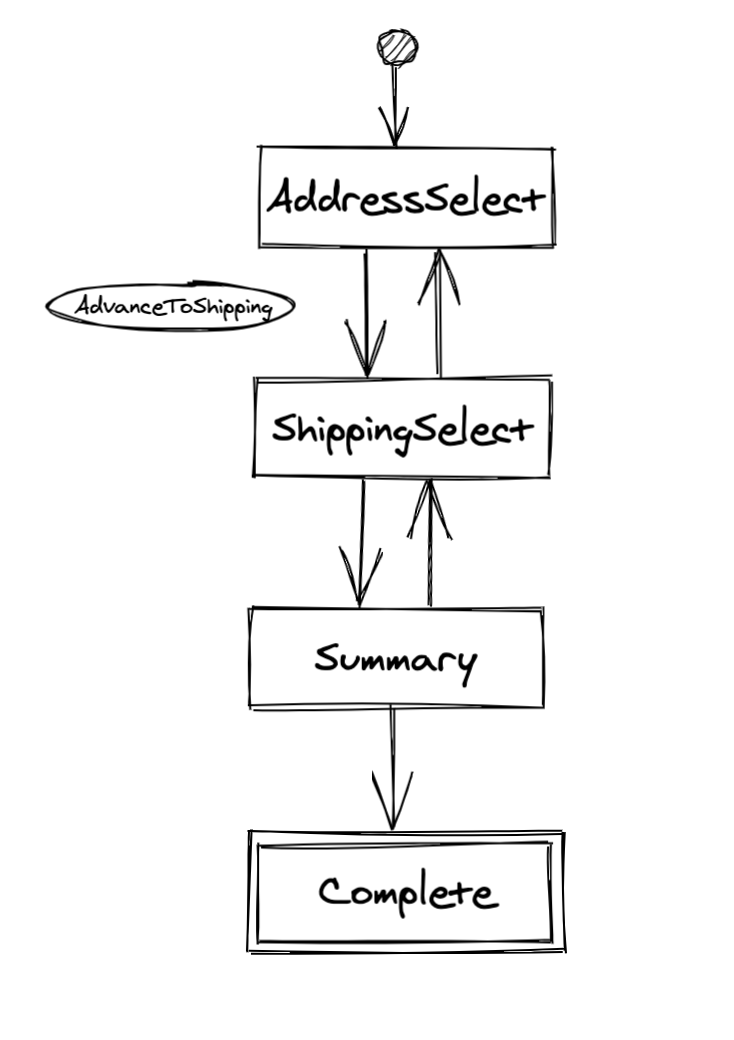dive-be / laravel-stateful
State pattern for any object in Laravel
Installs: 3 401
Dependents: 0
Suggesters: 0
Security: 0
Stars: 2
Watchers: 2
Forks: 0
Open Issues: 0
pkg:composer/dive-be/laravel-stateful
Requires
- php: ^8.1
- illuminate/support: ^9.0
Requires (Dev)
- friendsofphp/php-cs-fixer: ^3.6
- nunomaduro/larastan: ^2.0
- orchestra/testbench: ^7.0
- pestphp/pest: ^1.21
- pestphp/pest-plugin-laravel: ^1.2
- phpunit/phpunit: ^9.5
README
This package adds state support to non-Eloquent objects in Laravel.
If you need support for Eloquent models, there are excellent alternatives:
⚠️ Minor releases of this package may cause breaking changes as it has no stable release yet.
What problem does this package solve?
Usually, when defining "states" or "statuses" on objects, enumeration-like values/objects are used to represent the current state of the object.
While this approach is pragmatic and good enough for simple use cases, it tends to become a mess rapidly when complex domain logic has to be incorporated.
This package solves this problem by using the state pattern and the concept of state machines.
Installation
You can install the package via composer:
composer require dive-be/laravel-stateful
Usage
The best example is a practical example.
Context
Let's say there is a CheckoutWizard class that has many possible states: AddressSelect, ShippingSelect, Summary, Complete.
Each of these states should map to the current index of the Wizard in the front-end, and each step has an associated view that will be resolved by Blade.
Abstract state
That's why first, we should create an abstract CheckoutState class and define all possible transitions, as well as the requirements for each state (which view would we like to show, and what is the index of this state?).
It's important to think carefully about the possible transitions: it makes absolutely zero sense to go back to an AddressSelect state if the CheckoutWizard has reached the Complete state. However, it is perfectly fine for the user to go back to a previous step as long as the Complete state is not reached (not shown below, though).
Here's what an abstract version of CheckoutState might look like:
abstract class CheckoutState extends State { /* You can define which methods need to be implemented for each particular state. * For example, you might want each state to have an associated view to resolve. */ abstract public function view(): string; /* Like `view()`, each state should also have an associated index. * We'll enforce that this method needs to be implemented by each class * that inherits from this one. */ abstract public function step(): int; /* Set up which state transitions are allowed. * This is required for the states to function as expected. */ public static function config(): Config { return parent::config() ->allowTransition(AddressSelect::class, ShippingSelect::class) ->allowTransition(ShippingSelect::class, Summary::class) ->allowTransition(Summary::class, Complete::class); } }
Here's what the AddressSelect state might look like, which is extending the abstract CheckoutState:
class AddressSelect extends CheckoutState { public function view(): string { return 'checkout.address_select'; } public function step(): int { return 0; } }
The stateful class
Your stateful classes (classes that will make use of states and possible transitions) should implement the Stateful contract and use the InteractsWithState trait.
(The latter is optional, but recommended. Adhering to the contract is sufficient.)
Also, do not forget to define the initial state in the constructor.
class CheckoutWizard implements Stateful { use InteractsWithState; public function __construct() { $this->state = AddressSelect::make($this); } // Your code here }
Transitioning
Let's continue from our CheckoutWizard example. To transition to another state, you can do the following:
$checkout = new CheckoutWizard(); $checkout->getState()->transitionTo(Complete::class);
Unless the transition is allowed, a TransitionFailedException will be thrown preventing impossible state transitions.
"Custom" transitions
You may define your own Transition classes that will have access to the guard & after/before hooks.
Passing the FQCN to allowTransition in the config will suffice.
class AdvanceToShipping extends Transition { public function from(): string { return AddressSelect::class; } public function to(): string { return ShippingSelect::class; } }
public static function config(): Config { return parent::config()->allowTransition(AdvanceToShipping::class); }
Note: when registering a transition without a custom class, a DefaultTransition is created for you automatically.
Guards (validation)
Sometimes, even when a specific transition is allowed, certain conditions may have to be met in order to transition.
In this case, guards may be used to achieve this behavior. A custom Transition is compulsory to use this feature.
- Returning
truefrom the guard will allow the transition to take place. - Returning
falsewill cause aTransitionFailedExceptionto be thrown.
class AdvanceToShipping extends Transition { // omitted for brevity public function guard(CheckoutWizard $wizard, MyService $service) { return $service->isValid($wizard); } }
You can access the stateful object by defining a type-hinted method argument with either the Stateful contract or your own sub class.
Any other type-hinted dependency will be injected via the container using method injection.
Now, every time a transition is attempted, the guard will be executed first.
Side effects / hooks
You can use the after or before hooks on the Transition class to define methods that should be executed
before or after a certain transition has taken place.
class AdvanceToShipping extends Transition { // omitted for brevity public function after(CheckoutWizard $wizard) { // run immediately after the transition } public function before(CheckoutWizard $wizard) { // run just before the transition } }
Like any guard, hooks can access the stateful object by properly type-hinting a method argument.
Testing
composer test
Changelog
Please see CHANGELOG for more information on what has changed recently.
Contributing
Please see CONTRIBUTING for details.
Security
If you discover any security related issues, please email oss@dive.be instead of using the issue tracker.
Credits
- Muhammed Sari
- All Contributors
- Spatie for their superb Model States package that has heavily inspired this package
License
The MIT License (MIT). Please see License File for more information.

